Share

This Week in Business
Why Businesses Should Work to Improve the Health of the Communities They Are In
•
Dr. Risa Lavizzo-Mourey is a PIK Professor of Population Health and Health Equity at the Perelman School of Medicine, Penn School of Nursing, and Wharton, and President Emerita and Former CEO of the Robert Wood Johnson Foundation. She is one of Modern Healthcare's 100 most influential people in health care. Risa joins host Laura Zarrow to discuss her mission to help companies encourage access to affordable healthcare in their communities by addressing environmental, social, and structural challenges that may impact residents' health on Women@Work.
More episodes
View all episodes
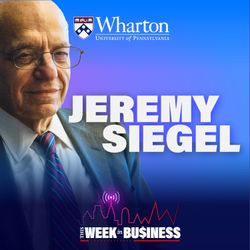
Fed Leadership, Rate Cuts, and Geopolitical Risks Ahead
10:39|Jeremy Siegel, Professor Emeritus of Finance at the Wharton School and Senior Economist at Wisdom Tree, analyzes the Supreme Court’s ruling on tariffs, the market’s resilience amid policy uncertainty, the potential impact of Kevin Warsh as Fed chair, and how geopolitical tensions with Iran could influence interest rates and economic growth.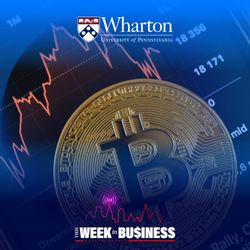
Understanding Crypto Sentiment and Market Signals
11:33|Dave Reibstein, Professor of Marketing at the Wharton School, explains how the school’s Cryptocurrency Confidence Index tracks U.S. consumer sentiment, explores links between confidence and price volatility, and examines the role of regulation and public perception in shaping the future of digital assets.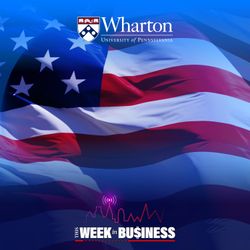
How Geopolitics Is Hitting Local Gas Stations
12:36|Serguei Netessine, Wharton Professor of Operations, Information and Decisions, discusses how U.S. sanctions on Lukoil are disrupting franchise agreements, banking relationships, and customer perceptions for locally operated gas stations in New York, New Jersey, and Pennsylvania.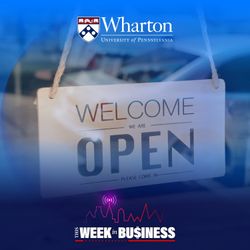
Why Hiring Has Slowed Without Mass Layoffs
12:11|Peter Cappelli, Professor of Management and Director of the Center for Human Resources at The Wharton School, examines the cooling in white-collar job openings, the impact of investor-driven cost cutting, the concept of “AI washing,” and why economic uncertainty is keeping companies cautious about expanding their workforce.
Stablecoins Explained: Bridging Digital Assets and Traditional Finance
10:56|Kevin Werbach, Wharton Professor of Legal Studies and Business Ethics, discusses the Stablecoin Toolkit and how clearer definitions, regulatory frameworks, and emerging use cases could position stablecoins as a bridge between digital assets and the traditional financial system.
Super Bowl Advertising Trends, Creative Strategy, and Brand Competition
12:19|Dr. Americus Reed, II, Wharton Professor of Marketing, breaks down the strengths, themes, and competitive dynamics of this year’s Super Bowl ads, including the role of nostalgia, humor, artificial intelligence, and long-term brand storytelling.
The Economic Reality Behind Billionaires Taxes and State Budgets
10:15|Kent Smetters, Faculty Director of the Penn Wharton Budget Model and Professor of Business Economics and Public Policy at the Wharton School, analyzes the origins of billionaire and wealth taxes, explains why they consistently underperform revenue expectations, and explores their economic distortions at both the state and national level.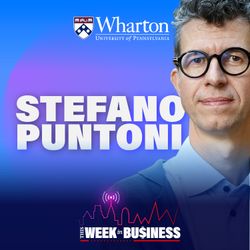
How Advertising Could Reshape ChatGPT and Digital Marketing
13:00|Stefano Puntoni, Wharton Professor of Marketing and Co-Director of the Wharton Human-AI Research Program, discusses OpenAI’s move toward advertising, its implications for monetization, consumer experience, and the future of digital advertising.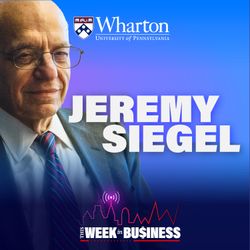
What the Fed’s Pause Signals for Economy and Markets
11:42|Jeremy Siegel, Wharton Emeritus Professor of Finance and Senior Economist at WisdomTree, analyzes the Federal Reserve’s decision to hold rates, the significance of dissenting votes, the outlook for future cuts, shifting market leadership, and how AI-driven productivity may shape the economy and labor markets heading into 2026.